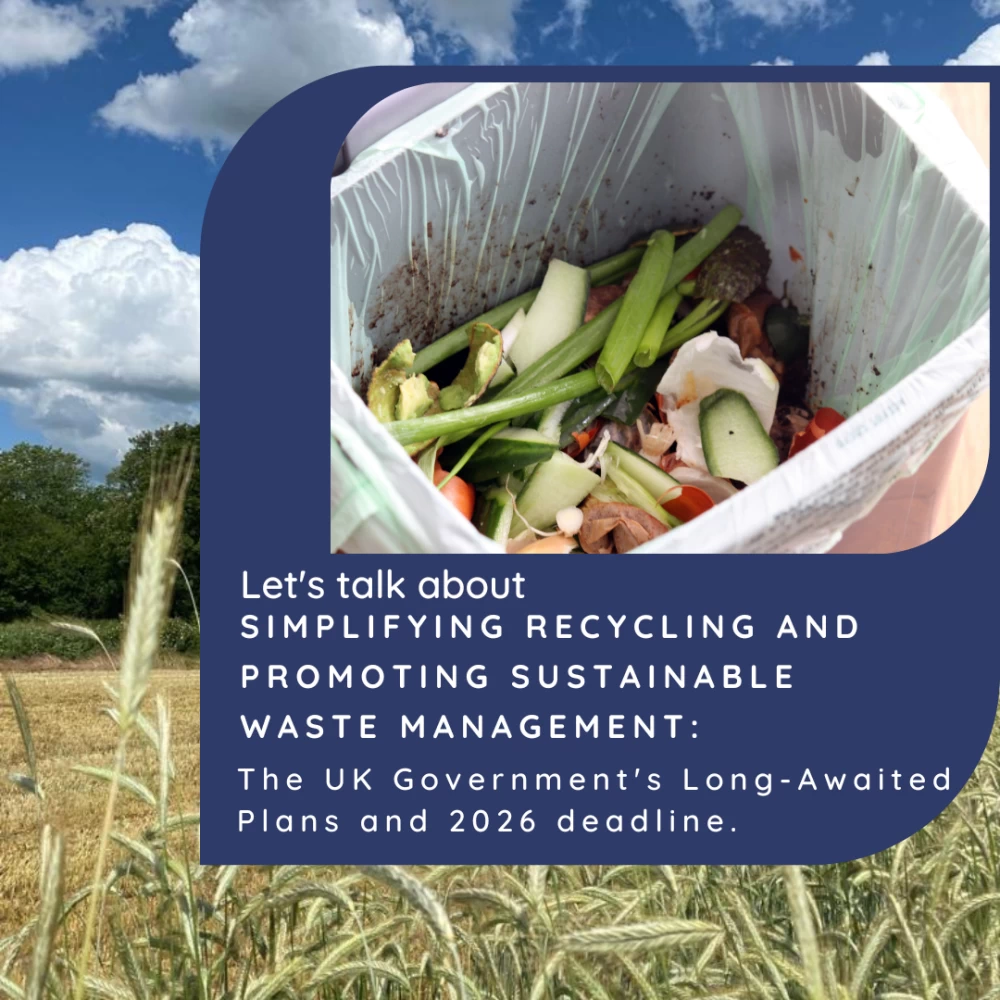
Anaerobic Digestion and Waste Management:
Unlocking the Potential of Organic Waste
In our current era of environmental consciousness, waste management plays a pivotal role in creating sustainable solutions. One such solution is anaerobic digestion, a process that diverts organic waste from landfills and offers numerous positive implications for waste management. In this blog, the Agri-Connect team explores the importance of anaerobic digestion and its potential to revolutionise waste management systems.
1. The Problem with Organic Waste:
Organic waste, including food waste and agricultural residues, make up a significant portion of our overall waste. When left in landfills, organic waste decomposes anaerobically, releasing methane, a potent greenhouse gas. This contributes to climate change and poses environmental risks. Additionally, landfills require vast land areas and create various challenges, such as odour and groundwater pollution.
2. Anaerobic Digestion: A Sustainable Solution:
Anaerobic digestion offers a sustainable alternative to traditional waste management methods. Instead of sending organic waste to landfills, it is redirected to anaerobic digesters where the waste undergoes a controlled breakdown process. This process has several benefits:
a. Methane Capture and Emission Reduction: Anaerobic digestion captures the methane produced during the decomposition of organic waste. We can significantly reduce greenhouse gas emissions by harnessing this methane and utilising it as biogas. Moreover, biogas derived from anaerobic digestion can replace fossil fuels, further mitigating climate change.
b. Waste Diversion: Anaerobic digestion diverts organic waste from landfills. Doing so reduces the space required for landfills and minimises the associated environmental risks, such as odour and water pollution.
c. Nutrient Recycling: The by-product of anaerobic digestion, known as digestate, is a nutrient-rich substance that can be used as a biofertiliser. Applying digestate to agricultural land helps improve soil health, reduces the need for chemical fertilisers, and promotes a circular economy by closing the nutrient loop.
d. Energy Generation: The captured biogas can be converted into electricity and heat, providing a renewable energy source. This renewable energy potential makes anaerobic digestion a valuable component of a sustainable energy mix.
3. Anaerobic Digestion in Action:
Anaerobic digestion is already being implemented in various waste management systems worldwide. Examples include:
a. Public Solid Waste: Currently, only 50% of local authorities such as West Northants Council and Newcastle-under-Lyme Borough Council, have implemented anaerobic digestion facilities to process food waste from households, restaurants, and commercial establishments. This reduces the amount of organic waste sent to landfills and generates renewable energy from the captured biogas.
b. Agricultural Sector: Farms and agricultural facilities utilise anaerobic digesters to manage livestock manure, crop residues, and other agricultural by-products. This not only aids in waste management but also provides on-site energy production and nutrient recycling in farming operations.
c. Industrial Waste: Anaerobic digestion is employed in industries that generate large quantities of organic waste, such as food processing plants, breweries, and dairies. By diverting waste from landfills and converting it into biogas, these industries can reduce environmental impacts while simultaneously meeting their energy requirements.
In conclusion, Anaerobic digestion has emerged as an effective waste management solution that benefits our environment and society. By diverting organic waste from landfills, it minimises greenhouse gas emissions, reduces pollution risks, and provides a sustainable renewable energy source. Embracing anaerobic digestion helps us overcome the challenges associated with organic waste management and contributes to a more sustainable and circular economy.
It’s time for you to unlock the potential of anaerobic digestion. Contact Agri-Connect to discuss how we can help you pave the way to a greener future. enquiries@agri-connect.co.uk


